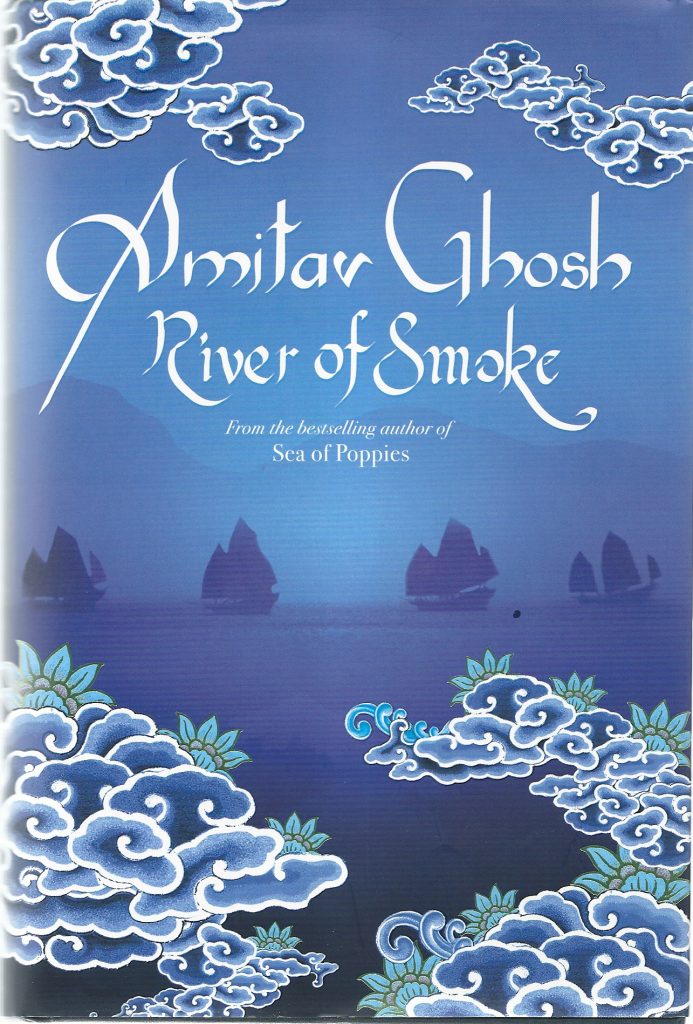
The British think him dead, drowned at sea. But Neel Rattan Halder has found his way to Canton, in the employ as the munshi, or secretary, of Seth Bahram Mody, a Parsee businessman. Paulette has found employment with Fitcher Penrose, a botanist, and is taking care of rare flowering plants aboard his ship. She too has found her way to the Pearl River, to the small island of Hong Kong.
Seth Mody is a fixture in Fanqui-town, the foreign enclave. The offices from where trade is conducted by the foreign traders are called “Factories”. Foreigners are not allowed to set foot inside Canton, and the factories are situated outside the main fort, at 13, Hong Street. Mody has bet his entire fortune on bringing in one last shipment of opium before the Chinese authorities clamp the trade shut. As a leader of the “Achas”, the pejorative used for Indians in the Canton factories, he is a powerful voice in the dealings of the opium traders of the Canton factories.
Robin Chinnery, a childhood friend of Paulette, also lives at the Factories and makes a living by painting portraits, and sometimes, fakes of famous paintings.
The Chinese have sent a new commissioner, the incorruptible and powerful Lin Zexu, to put an end to the opium trade. But a clash of cultures precipitates in acrimonious exchanges between the traders and the authorities, setting the stage for outright hostilities.
The writing is magnificent, though decidedly slow-paced after the frenetic break-neck thriller that was Sea of Poppies. All the events are told from the perspectives of Mody, Chinnery, and Halder. The language(s) used are, as usual, simply gorgeous. The Indianized English of Mody, the clever period specific double entrendes of Chinnery, and the ubiquitous Chinese pidgin used in all interaction with the locals in Canton.
The chief complaint is the lack of likeable characters. Almost none of the characters Ghosh built up in the Sea of Poppies make more than a passing appearance, except for Paulette and Neel Rattan. Neel Rattan does little more than narrate, and Paulette barely shows up.
Ghosh tries hard to make Seth Mody the linchpin. But the ambiguities in his character do little to help him rise in esteem to the level of Kahlua or Serang Ali. The story itself is very slow moving, with the focus being more on language than the story.
Then again, the way I see it, language is the primary character. All the people exist only to use the language. And there, the book is just marvelous.
